From Jayson Castro to Wael Arakji, who had the best FIBA Asia Cup debut in recent memory?
BEIRUT (Lebanon) - You only get one shot at a first impression and these players (and teams) made sure to make the most out of that in their FIBA Asia Cup debuts!
BEIRUT (Lebanon) - You only get one shot at a first impression and that includes everyone at the FIBA Asia Cup. Maybe you can get a shot at redemption or have a breakout tournament in your second, third, or even fourth appearances at the tournament, but the first time that you actually make it there stays with you. Here are some players who made sure to make their presences known immediately in their Asia Cup debuts!
Jimmy Alapag (Philippines, 2007)
There might not be a bigger name in the Philippines than that of, ironically, one of their smallest players. Jimmy Alapag's debut Asia Cup appearance came at the age of 29, playing in the 2007 edition of the tournament for the Philippines.
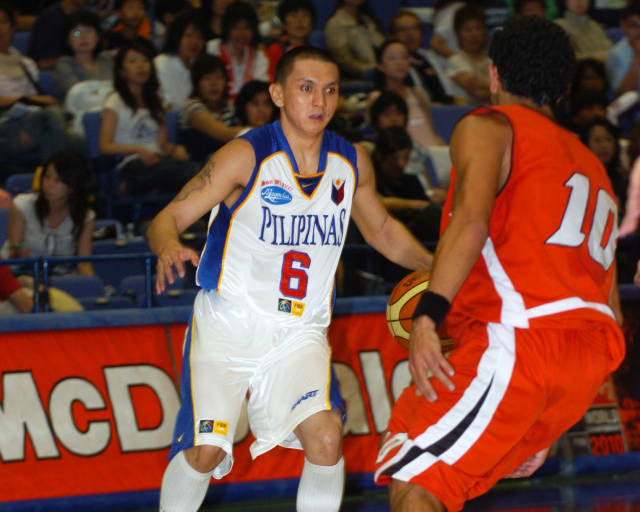
It didn’t take much time for Alapag to make his presence known, pouring in 25 points on 5-11 shooting from downtown in just his second Asia Cup game which was a win against longtime rivals China. Only two days later, the diminutive guard scored his Asia Cup-high of 32 points to score a 107-100 win against Syria. Alapag finished the tournament in 9th place in scoring that year with 16.0 points per game, more impressively in only 25.3 minutes per game which was the least among the top 10.
Alapag went on to play in 2 more Asia Cups, but his debut tournament was his highest scoring year of them all. Of course, we all know that he would go on take make bigger shots later in his Asia Cup career.
Vishesh Bhriguvanshi (India, 2009)
The bearded Bhriguvanshi has become one of the better known Indian talents in the basketball world over the years for his ability to put points on the board. The scoring guard has even averaged more than 13 points per game in 3 of his 5 Asia Cup appearances.
Vishesh immediately arrived on the scene determined to prove that to the basketball world in Asia and is showed his 2009 debut performance. At just 17-years-old, Bhriguvanshi dropped 26 points on a solid Kazakhstan team and got India to within only 2 points of an upset in the 72-74 loss. Even after suffering first game jitters of 4 points on 1-11 shooting in his debut game, Bhriguvanshi wrapped up the tournament with an average of 15. 8 points per game and 40.6 percent shooting from beyond the arc.
Basketball fans would be hard pressed to find another 17-year-old that have as good of a debut tournament as Bhriguvanshi did in 2009.
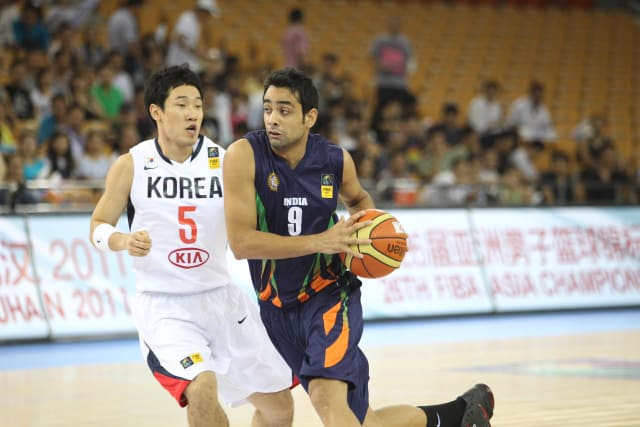
Arsalan Kazemi (Iran, 2011)
With the depth of the Iranian national team, it’s not easy to break into the ranks as a key contributor right from the start. That was not the case for Arsalan Kazemi who had arguably the best Asia Cup debuts for Iran in recent memory back in 2011.
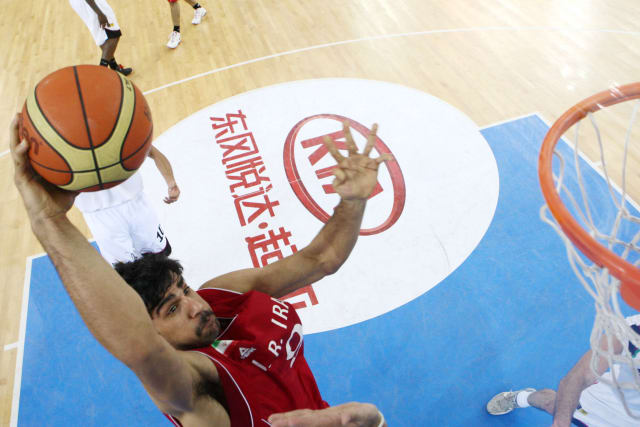
Even on a squad with Hamed Haddadi, Samad Nikkah Bahrami, and Oshin Sahakian, the 21-year-old Kazemi was still able to stand out among his teammates. Kazemi was second on the team in both scoring and rebounds, with 12.0 points and 8.9 rebounds per game.
The 1.99M (6’6”) small forward has developed to be one of the most well-rounded forwards in the region and is on the hunt, hungry for his first Asia Cup title.
Cho Sung Min (Korea, 2011)
The Korean forward rose from the ranks as a lesser heralded shooter but once he got the call to play for the national team, he made sure to make no one regret calling him up.
The 27-year-old was deployed onto the court strategically, averaging only 15.3 minutes in his debut Asia Cup in 2011. Whenever he was called onto the floor, it was clear that he had the greenlight to fire away from downtown. Cho knocked down 43.2 percent of the his three-pointers, good for 7th among all shooters at the Asia Cup that year.
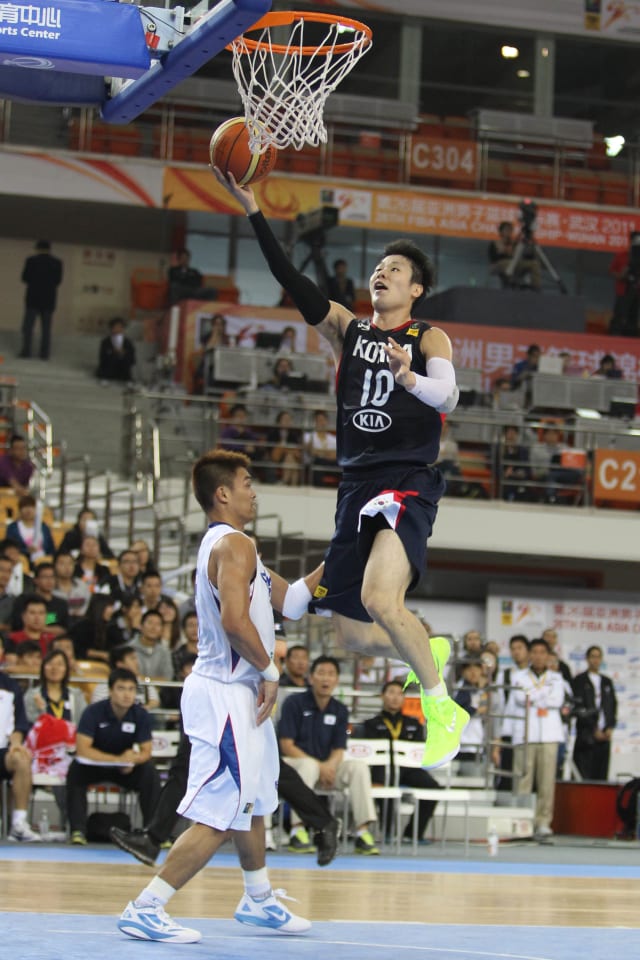
The most impressive part of Cho’s debut Asia Cup was how he stepped up in the clutch against the Philippines for the bronze medal, leading his team with 20 points.
Jayson Castro William (Philippines, 2013)
Back in 2013, the aforementioned Alapag was already 35-years-old in what would eventually be his last Asia Cup. Therefore, the Philippines needed a fresh face to hold down take up the torch as floor general in Asia Cup 2013.
Castro gladly accepted the challenge and put up what was one of the best Asia Cup debuts ever. The speedy guard who was then 27 years old recorded 11.8 points, 3.3 rebounds, and 3.0 assists per contest in just 20.9 minutes per contest which garnered him a spot on that year’s All-Star Five.
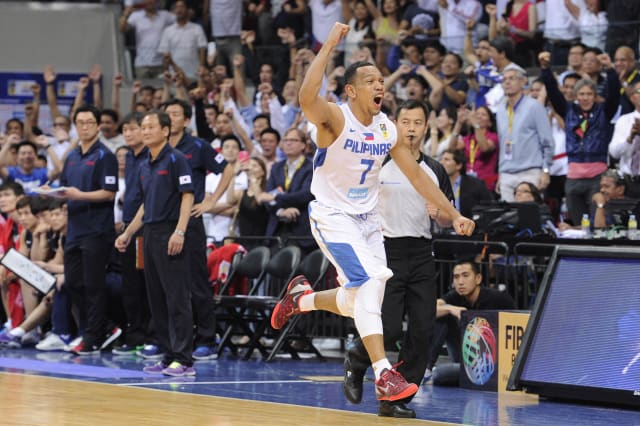
Fans will no doubt remember Alapag’s three-point against Korea as “The Shot”, but it would be unfair to overlook Castro’s 17 points on 8-13 shooting in that same game.
Sani Sakakini (Palestine, 2015)
The debut of the Palestine national team and Sani Sakakini at FIBA Asia Cup 2015 will go down as one of the best of All-Time.
With 0 games of Asia Cup experience, the “rookies” went up against the Philippines - who would eventually make it to the title game - and took them down in a shocking 75-73 upset. Sakakini made his presence known with 22 points and 14 rebounds in his very first game.
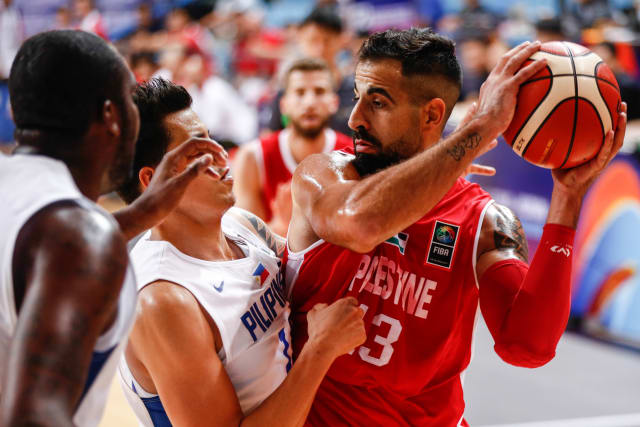
Though Palestine ended up at 10th place, they played in close games and impressed fans all around Asia. Star forward Sakakini was superb from start to finish and even led the tournament in both scoring (22.4 points per game) and rebounding (12.6 boards per contest).
It was the perfect storm. A talented generation of players coming together at the perfect time for their country’s first ever Asia Cup to catch other teams by surprise, leaving everyone in anticipation for their next time at this competition. At the center of the storm was their brightest star Sani Sakakini who had the debut of a lifetime.
Wael Arakji (Lebanon, 2015)
It’s not easy playing the lead guard spot after only recently turning 21 years old for a country as proud as Lebanon in a setting a high-level as the Asia Cup, which is exactly what Wael Arakji did in 2015 with relative success.
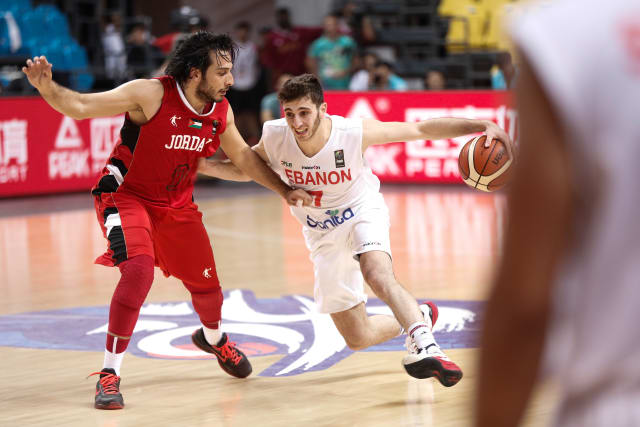
The 1.94M (6’4”) guard went straight to business with a 14-point outing in a debut win against Chinese-Taipei before finishing with an average of 9.8 points, 2.8 rebounds, and 3.6 assists per contest. Arakji also impressed in a 14-point, 6-rebound, 7 assists Group Phase loss to Qatar in overtime. He was even able to later avenge that loss in a classification game where he exploded for 21 points, 5 rebounds, and 5 assists.
Arakji has emerged into the star that fans have expected him to become and we’ll soon be looking back at how good he already was in his debut, impressed with how far he’s come.
Zhou Qi (China, 2015)
The 7-footer out of Xinjiang had been dominating the youth scene for nearly 4 years before finally making his first Asia Cup appearance in 2015. It was a home debut, playing in front of the Chinese crowd and though the 19-year-old played in limited minutes, he made a lasting impact when he was unleashed.
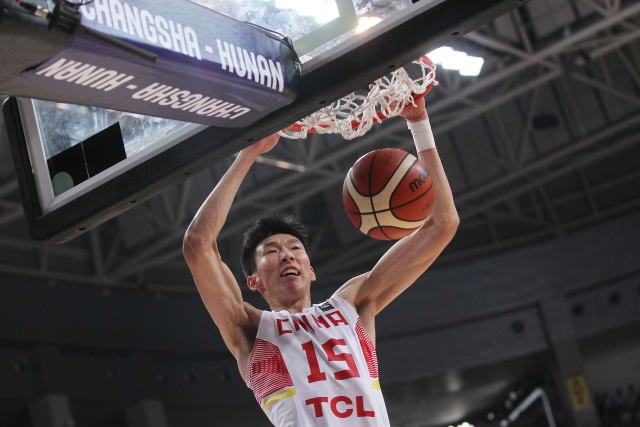
In just his second game against Korea, Qi racked up 21 points on 9-14 shooting from the field to go with 8 rebounds. He would then save his best for last in the championship game against the Philippines, going off for 16 points and 14 rebounds for his first Asia Cup title. In just 18.6 minutes of action on average, the 19-year-old prodigy logged 9.9 points, 6.0 rebounds, and 2.0 blocks per game.
China has had plenty of bright young talents graze through the Asia Cup, but Zhou Qi was one of the brightest to ever shine in his very first try.
Mitch Creek (Australia, 2017)
Australia’s debut in the Asia Cup was highly anticipated leading up to the 2017 edition of the competition. When they finally made it to the court, they didn’t disappoint. Mitch Creek, in particular, was one of the brightest spots of the strong Boomers squad.
Creek and his team went into the FIBA Asia Cup 2017 and ran through opponents from start to finish to claim a gold on their very first try. They beat their opponents by an average of 28.8 points per game, the smallest deficit being a 16-point win over Japan in their first game.
Then 25-years-old at the time, Creek scored in double digits in all 6 games to lead the team in scoring at 14.7 points per game. He was also one of the more efficient players in Asia Cup 2017, clocking in at 19.7 Efficiency per game.
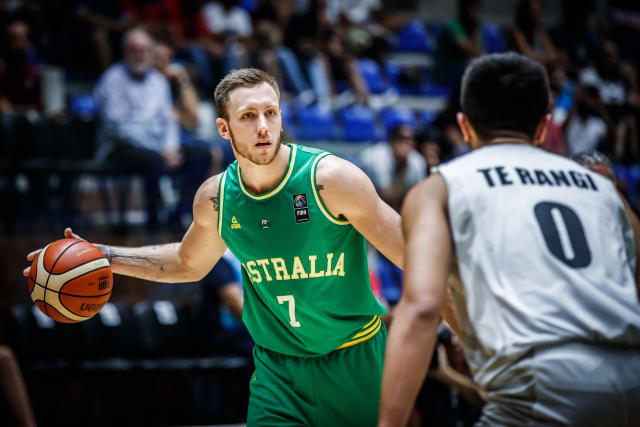
It was later proven that Australia were indeed not invincible (See: Japan and Iran at FIBA World Cup 2019 Asian Qualifiers), but during it sure seemed like they were during their debut Asia Cup 2017 with Creek leading the way.
FIBA